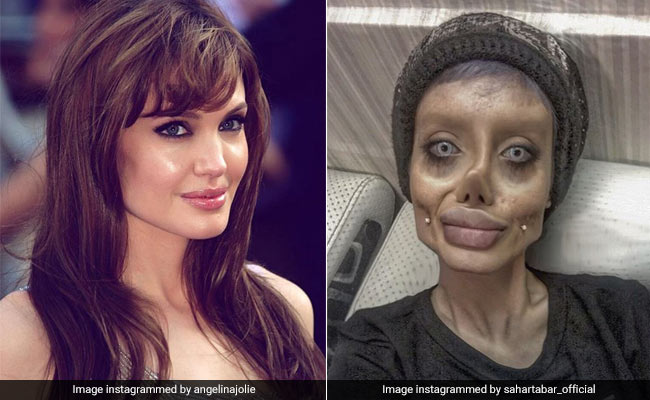Examining the Mental and Social Aspects That Drive People to Think About Plastic Surgery as a Way of Renovation
The decision to pursue cosmetic surgical treatment typically extends beyond mere aesthetic appeals, intertwining with social and emotional dynamics that merit detailed examination. Aspects such as self-confidence, pervasive social elegance requirements, and the pervasive impact of social media assemble to form specific inspirations for surgical improvement.
The Duty of Self-confidence
Self-esteem dramatically affects a person's decision to seek cosmetic surgical treatment. Individuals with low self-confidence often regard themselves in a negative light, resulting in sensations of insufficiency regarding their physical look. This negative self-perception can drive them to seek surgical interventions as a technique of boosting their self-image. The wish for renovation in one's appearance is regularly connected to an idea that such changes will raise their overall self-worth and confidence.
:max_bytes(150000):strip_icc():focal(745x123:747x125)/botched-plastic-surgery-drunk-surgeon-tout-010424-1d80c7b734e942eb8f0953dc13be8ee0.jpg)
Inevitably, the role of self-confidence in the decision-making process concerning cosmetic surgery highlights the complex interplay between body image, individual satisfaction, and psychological health and wellness. Recognizing this connection is vital for medical care professionals to ensure that patients are making informed choices rooted in reasonable expectations and psychological well-being.
Societal Charm Criteria
Influenced by prevalent media portrayals and cultural stories, social appeal standards play a crucial role in shaping individuals' assumptions of their own bodies. These requirements are commonly characterized by an idyllic kind of beauty that stresses attributes such as proportion, youthfulness, and slimness. As these suitables are bolstered with different channels, including film, television, and advertising, individuals often internalize these messages, resulting in frustration with their natural look.
The effects of these social standards expand past aesthetic preferences; they can influence self-worth, mental wellness, and interpersonal partnerships. Individuals that perceive themselves as dropping short of these criteria might experience sensations of inadequacy, triggering a desire for cosmetic surgical procedure as a means of achieving social approval. This search is typically sustained by the belief that satisfying these suitables will improve not just physical look yet additionally social standing and personal gratification.

Influence of Social Media Site
The impact of social appeal criteria is further intensified by the increase of social networks systems, where curated images and idyllic representations of beauty are ubiquitous. Customers are frequently subjected to filteringed system and modified photographs, which usually portray unattainable physical characteristics. This direct exposure grows a society of comparison, leading people to examine their very own look against these frequently impractical standards.
Social media influencers and celebs frequently promote cosmetic treatments, normalizing the concept that surgical enhancements are a feasible ways for achieving social perfects (plastic surgery rancho cucamonga). The presence of these improvements can produce an assumption that undertaking plastic surgery is a common technique, consequently affecting individuals to take into consideration comparable interventions as a path to improved self-worth and social acceptance
Moreover, the interactive nature of social networks enables immediate comments through likes and remarks, further strengthening the desire to adjust to prominent appeal requirements. Such interactions can worsen sensations of insufficiency and drive individuals towards plastic surgery as a way of obtaining validation. Eventually, social networks plays a crucial role in forming assumptions of appeal, which considerably impacts the decision-making procedures surrounding plastic surgery.

Social Perspectives on Look
Across various cultures, assumptions of appearance are deeply rooted in historic, social, and financial contexts, shaping people' sights on elegance and internet worth. In numerous cultures, look works as a considerable marker of identification, influencing social status, expert possibilities, and individual partnerships. For instance, in some cultures, light skin is typically related to wealth and advantage, while others may idealize darker complexion as signs of strength and credibility.
In addition, typical appeal standards are usually perpetuated through social narratives, media representations, and family members influences, bring about differing ideals throughout different regions (plastic surgery rancho cucamonga). In Western cultures, the focus on young people and physical health and fitness typically drives people towards aesthetic enhancement, while in particular Eastern cultures, more refined adjustments aligned with typical aesthetics may be chosen
Globalization and the spreading of electronic media have actually better made complex these dynamics, developing a hybridization of appeal perfects that goes beyond geographical limits. As people increasingly navigate these social narratives, the pressure to adapt particular look standards can result in the need for cosmetic surgery, showing an intricate interplay of cultural values and individual ambitions. news Recognizing these cultural point of views is necessary in dealing with the inspirations behind cosmetic surgical treatment considerations.
Psychological Effects of Aesthetic Surgical Treatment
Lots of individuals looking for cosmetic surgery record experiencing profound emotional effects that can dramatically alter their self-perception and psychological health - plastic surgery rancho cucamonga. The desire for physical enhancement often comes from underlying problems such as reduced self-esteem, body dysmorphic condition, or societal pressures regarding appeal requirements. For some, the instant post-operative stage can result in a temporary boost in confidence and fulfillment with their appearance, promoting a sense of empowerment
Nonetheless, these positive feelings may not be withstanding. Research study suggests that while some people experience boosted self-worth, others may face heightened stress and anxiety or anxiety if their expectations are not fulfilled. This discrepancy can develop from unrealistic suitables perpetuated by media representation and social stories bordering charm.
Moreover, the mental implications of plastic surgery expand beyond the person. Relationships with friends and family might be strained as social dynamics change, bring about sensations of isolation or alienation. Ultimately, the emotional influences of plastic surgery are diverse and intricate, calling for mindful consideration by both potential patients and health care service providers to guarantee informed decision-making and sensible expectations.
Conclusion
To conclude, the decision to seek cosmetic surgical get more treatment is substantially influenced by a mix of self-esteem issues, societal beauty requirements, and cultural perspectives on look. The prevalent reach of social media better worsens these stress, promoting impractical suitables that individuals often strive to achieve. Comprehending these social and mental factors is vital for dealing with the inspirations behind cosmetic surgery, highlighting the requirement for a much more nuanced discussion bordering appeal and self-acceptance in modern society.
The choice to go after cosmetic surgery frequently expands beyond simple appearances, intertwining with mental and social characteristics that warrant detailed evaluation. Inevitably, social media plays a critical function in shaping understandings of appeal, which dramatically impacts the decision-making procedures surrounding cosmetic surgical treatment.
As individuals progressively navigate these cultural stories, the pressure to conform to specific appearance standards can lead to the desire for cosmetic surgical procedure, showing a complex interplay of social worths and individual goals.In conclusion, the choice to go after cosmetic surgical procedure is substantially influenced by a combination of self-confidence issues, societal elegance requirements, and cultural perspectives on appearance. Understanding these social and emotional aspects is essential for attending to the inspirations behind cosmetic surgical procedure, highlighting the requirement for an extra nuanced conversation bordering elegance and self-acceptance in contemporary culture.